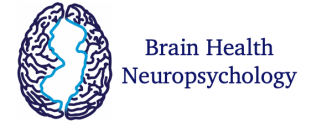
What is board certification?
Board certification demonstrates expertise in the field and is the highest standard of the profession. It is a multi-step, rigorous process to ensure candidates have the breadth and depth of training required of an ABPP diplomate. Most importantly, individuals seeking a neuropsychological evaluation from a boarded neuropsychologist can be sure that they are receiving the best possible care!
What Is The Process?
So, how does one become board certified? Step one is called “Credential Review.” The candidate submits an application that includes information about the school they attended for their doctorate, relevant coursework and training, as well as the sites where they completed internship and fellowship training. These components must adhere to the Houston Conference Guidelines (*soon to be updated at the Minnesota Conference*), which is a set of regulations and “minimum qualifications” expected in a neuropsychologist. For example, the candidate must demonstrate that they completed a doctorate in clinical psychology, documented work in neurology or neuropsychological settings, and have taken appropriate coursework in neuroanatomy, cognitive neuroscience, and psychopharmacology. Once a candidate has passed credential review, they are granted approval to sit for step two.
Step two is the written examination. This examination contains applied questions about neuropsychology- from ethics, to case vignettes, psychopharmacology, to neuroanatomy structure and function. It is an opportunity for the candidate to demonstrate their knowledge of all aspects of neuropsychological science.
Following the written examination, step three is the submission of work samples. These are de-identified copies of reports written by the candidate, and these samples are reviewed by three board-certified neuropsychologists. This is a blinded review, meaning the candidate is judged based solely on their work. If the reviewers feel the individual’s samples are well-written, coherent, and accurate in both content and diagnostic formulation, the candidate moves on to step four.
The final phase of boarding is the oral examination. The candidate completes three, 1-hour sessions with a cadre of examiners. The candidate completes an ethical examination to ensure the individual is well-versed in the ethics code and is not likely to do harm to the patient he or she treats. The second component is a mock-case, also called a fact-finding, where the candidate elicits information about a mock patient in order to demonstrate their process of gathering background information, case conceptualization, diagnosis, and recommendations. The final component is defense of the two case samples submitted in step three.
Once the candidate successfully completes all of those steps, the individual is board certified! Without question, individuals who are board certified have demonstrated dedication to the field and to the patients they serve.
How Do I Get Support In The Process?
I encourage anyone who is interested in board certification to check out the ABCN website, and to reach out to me directly for consultation. I would be glad to join you on this incredible journey!
